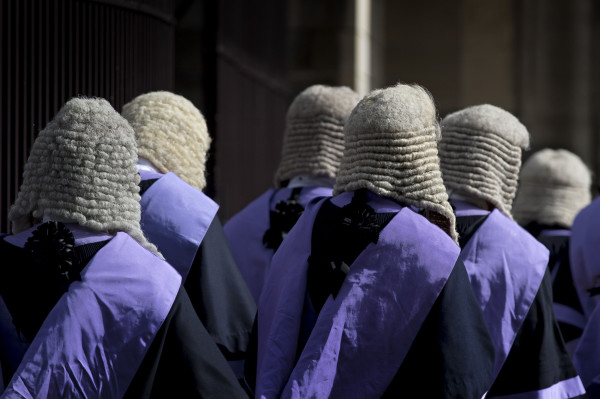

Civil partnerships, like marriages, offer legal and financial protection for both parties in the event of the relationship ending and benefits including inheritance, tax, pensions and next-of-kin arrangements.
However, according to UK law, only two people of the same sex may enter into a civil partnership. New rules introduced in 2013 made marriage of same-sex couples lawful, without repealing the previous legislation.
The appellants in the Supreme Court case are a different-sex couple in a committed long-term relationship, which they wish to formalise.
However, they have genuine ideological objections to marriage based upon what they consider to be its historically patriarchal nature. They wish instead to enter into a civil partnership, which they consider would reflect their values and give due recognition to the equal nature of their relationship, according to court documents.
The court judgment said that the consequences in denying civil partnerships for such couples may be far-reaching.
“A couple may, for example, suffer serious fiscal disadvantage if one of them dies before their relationship is formalised. There is no end point in sight for the present inequality of treatment,” it added.
According to Rachael Griffin, tax and financial planning expert at Old Mutual Wealth, the “future of civil partnerships has been swung wide open,” since the court ruling has “opened the door to a myriad of different duos”.
She said: “It increases the pressure on government to determine who deserves the inheritance and tax rights that marriage and partnerships involve.
“There have been a number of high profile cases of siblings living together in later life for many years fighting to be afforded similar rights as spouses on death. In the future, they may claim they are being discriminated against if they are not able to enter into a civil partnership.”
Ms Griffin noted the issue of civil partnerships will be reviewed by the government in 2020.
She said: “It is possible that the government have been mulling scrapping these partnerships altogether. Today’s judgement may mean policymakers need to think again.”
Sir Steve Webb, director of policy at Royal London, and former pensions minister, argued that if opposite sex couples who live together could register a civil partnership, “this could have a significant impact on those pension schemes which currently only provide survivor benefits to spouses and surviving civil partners”.
He said: “But in some ways, allowing opposite sex partners to register a civil partnership would be administratively helpful to schemes, as they would not need to draw up their own rules for who qualifies as a partner for the purposes of survivor benefits.”
Stephen Scholefield, partner at law firm Pinsent Masons, agrees with Sir Steve.
He said: “For some schemes, the position may become simpler.
“However, allowing opposite sex couples to enter into a civil partnership, and receive the pension benefits flowing from that, will be another cost for final salary schemes.
“It shows that even when benefits have long ceased to accrue, schemes are vulnerable to changes in the law improving the promises that they made. Most schemes will be able to cope with that.
“However, where benefits have been insured outside the scheme, there is a risk that opposite sex civil partners, if these become possible, may find that they are not covered by the policy terms.”
maria.espadinha@ft.com



